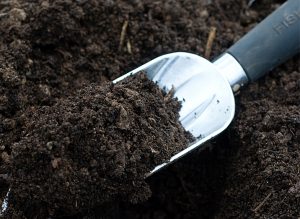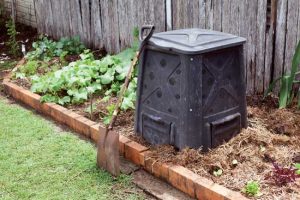Basic Information On Soil, Mulch and Compost

You can expect soil, mulch and compost to feature regularly in a gardener’s thoughts and conversations. You can expect to discuss them too if you’ve been fortunate enough to have sufficient lawn or yard space in your property. At the very least, learn the fundamentals so you can actively work toward a thriving garden whether you do the bulk of the gardening work yourself or hire the pros to take care of it for you.
Lots of people don’t mind dealing with soil and mulch; compost, however, is something else. Many tend to be leery about tangling with it. They find it technical and gross, definitely a double whammy. However, it does offer such great benefits that they understand that it’s really worth the bother. Not only does it enrich the soil; it also reduces household waste.
What should you know about soil, mulch and compost? Let’s start with mulching. It is an important aspect of gardening. Mulch helps retain moisture and nutrients in the soil as well as prevent weed infestation. It also helps that it makes the garden look even better. The following are basic instructions.
 Before you add mulch, you should:
Before you add mulch, you should:
- Get rid of weeds, grass, and dead plants from your garden.
- Make sure that your new plants are in place.
- Have your irrigation system
You can apply mulch any time, but it works best to add it before the dry season.
As for the soil, it’s not really as straightforward as it seems. For instance, dried soil isn’t easy to hydrate as it actually repels water, so you just end up wasting any you put on it. You need soil additives to do the work successfully. These are wetting agents, which enable the water to soak in, and water retention products which store water for later release. Water crystals, for instance, absorb water, gradually releasing it over time when the soil around them begins to dry.
On the subject of compost, the following are some of the materials suitable for creating it:
- Vegetable and fruit rinds and peelings
- Grass clippings, plant pruning’s, fallen leaves and flowers
- Egg shells
- Used tea bags
- Coffee grounds
- Vacuum dust
- Straw
- Shredded paper and cardboard
You can purchase a composting bin or build one yourself. There are different ways to compost, but they have to be carried out correctly for them to be effective as well as to prevent foul smells and pests.
There’s obviously more to laying the groundwork for your garden than meets the eye. With the above information, you at least now have a basic understanding of what goes into it.
If you would like any assistance in your garden, Jim’s Mowing will be glad to help. Call us on 0800 454 654 or book online for a free, no-obligation quote.


